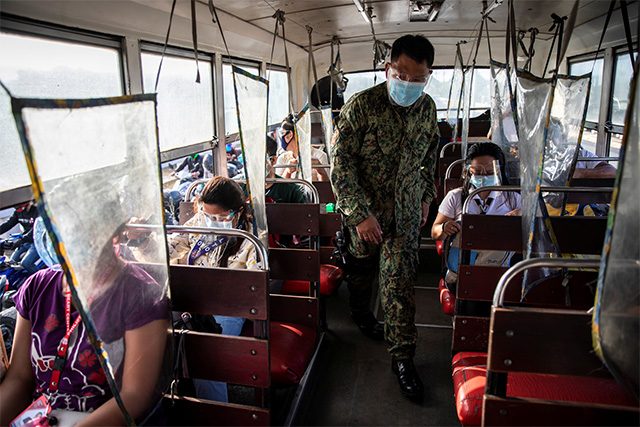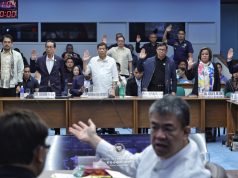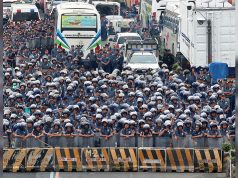
Law enforcers are not allowed to randomly conduct searches inside motor vehicles at checkpoints unless a warrant has been issued.
A law-related blog called “Batas for Every Juan” issued this advice on Facebook on September 27.
“IN CHECKPOINTS, DO NOT OPEN YOUR CAR EVEN WHEN ASKED,” the post reads.
“By law, police officers are only required to do visual searches on motor vehicles. That means that they cannot randomly ask you to open the trunk or any part of your car or the seat compartment in your motorcycles; they can only peek from outside with the aid of flashlights,” it added.
The blog pointed out that this policy was implemented to prevent police from planting evidence.
“This rule is designed to prevent law enforcement officers from planting incriminating evidence in your vehicle. Therefore, you should not open your car when randomly flagged down for inspection,” it said.
A Filipino translation of this information was also provided on the post.
The post is part of the blog’s information drive about laws called “Practical Tip Series” through the hashtag #batasforeveryjuan.
So far, this one garnered the most traction among its recent legal “tips” to its followers. It earned 7,300 reactions, 926 comments and 7,100 shares on the platform.
Several Filipinos seemed to be surprised about this rule.
In the comments section, there were users who asked if it applies to security guards in malls.
“Atty. may I ask, applicable din po ba ito sa mga security officers ng malls? Thank you po in advance,” one Facebook user said.
Other Filipinos lamented that such a policy seemed to be not observed by law enforcers in the country.
“Kailangan may seminar yung police sa checkpoint open. Yung iba kasi hindi nila alam,” one Facebook user said.
“Mahirap tumangi sa taong may hawak na baril at nakatutok sa iyo. Dapat para malinaw ang batas sa lahat including mga pulis at sundalo bawal magutos na buksan ang pinto o compartment,” another online user commented.
“Batas for Every Juan lang daw ito dahil in reality, di naman kinikilala ng mga power trip na mga enforcer natin,” another online user said.
Legal basis
In response to some inquiries about police checkpoints, the blog cited the following laws as the basis for the post:
- Article III, Section 2 of the 1987 Philippine Constitution
- Chapter 3, Rule 2 on Checkpoints (2.2) of the Revised Philippine National Police Operational Procedures
The provision in Article III, Section 2 of the Constitution stated the right of people against “unreasonable searches and seizures.”
“The right of the people to be secure in their persons, houses, papers, and effects against unreasonable searches and seizures of whatever nature and for any purpose shall be inviolable,” it said.
The section also pointed out that a search warrant or warrant of arrest will only be issued if there is a judge who found “probable cause” for it.
“No search warrant or warrant of arrest shall issue except upon probable cause to be determined personally by the judge after examination under oath or affirmation of the complainant and the witnesses he may produce, and particularly describing the place to be searched and the persons or things to be seized,” it said.
Under PNP’s procedures, meanwhile, law enforcers are also only allowed to conduct a “visual search” during a routine checkpoint.
“The conduct of inspection of vehicle during a routine checkpoint is limited to a visual search, done with due respect to all road users and conducted in a manner of least inconvenience,” the guideline reads.









